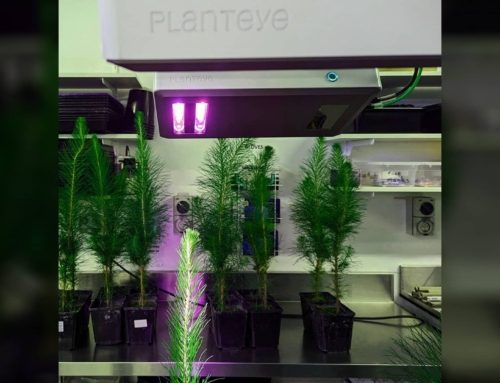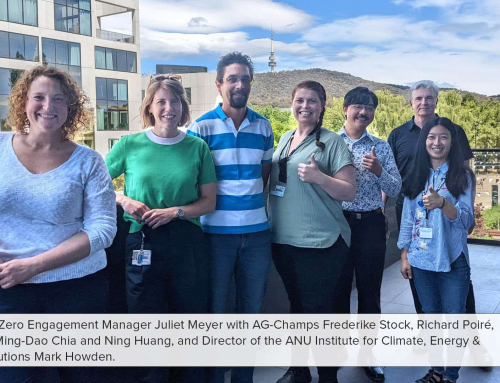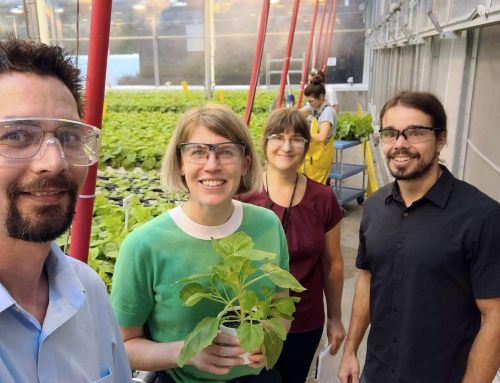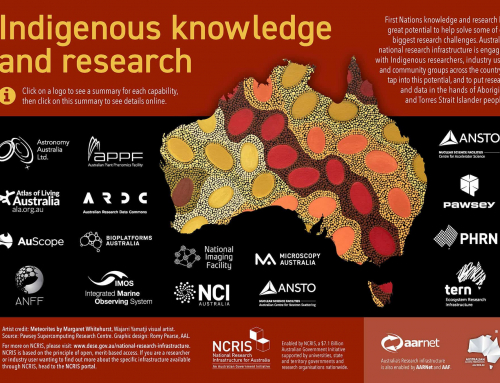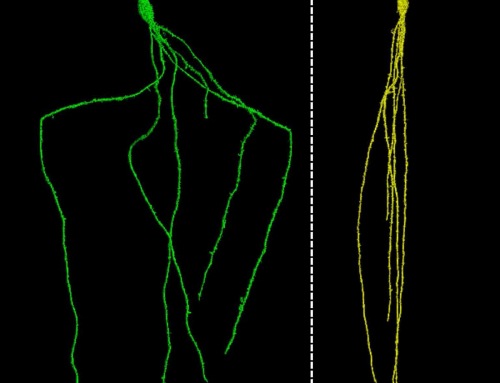The three national nodes of the Australian Plant Phenomics Facility (APPF) are home to a highly talented team of plant science researchers and specialists. This passionate, cross-disciplinary team is skilled in areas such as agriculture, plant physiology, biotechnology, genetics, horticulture, image and data analysis, mechatronic engineering, computer science, software engineering, mathematics and statistics. But who are they?
Today we take five minutes to get to know…
Michael Schaefer, PhD
Tell us a little about where you work within the APPF.
I am based at the CSIRO node of the APPF in Canberra. This centre focuses on “deep phenotyping” (delving into metabolism and physiological processes within the plant) and “reverse phenomics” (dissecting traits to discover their mechanistic basis). Here, next generation research tools are being developed and applied to probe plant function and performance, under controlled conditions and in the field.
What do you do there?
I’m a Research Scientist and Team Leader of the Translational Phenomics and Services team. My team looks after all of the new projects that come into our node of the APPF, from dealing with clients directly, to designing experiments based on the client’s needs, right through to providing the final data products and support with analysis.
What is the best part of your job?
As one of the newest team members, the best part of my job has been meeting and working with new people and dealing with new projects in different plants and crops. Every case is different, so designing and running each project is unique which provides a lot of variety.
Where do you see plant phenomics research in 5-10 years time?
I think in 5-10 years’ time plant phenomics research will be very different. We can already see that sensors and technology are getting smaller, faster and cheaper. I think much of what we do with large sensors (lidar for example) will be replaced by much smaller handheld devices or drones that will process data on the fly and give you a result straight away. This will affect all areas of science, not just plant science, so I think it will just be something that we have to adjust to.
“The moment I realised I loved plant science was…”
Somewhere during my undergraduate degree. I was doing straight science, biology, chemistry and physics – very broad – and then I started making links with how physics could be related to the environment (i.e. plants etc.). This seemed to make more sense to me, as I could see the application and how it could directly affect people now, rather than working on something theoretical that may or may not ever be used.
If you could solve one plant science question, what would it be?
For me, I’m really interested in pastures, so it would be the holy grail to be able to accurately, remotely measure above-ground biomass and split it into the green and senesced fractions.
“When I am not working I am…”
At home spending time with my wife Ali and daughter Emilia, or outdoors playing cricket, golf or fishing.
If you could have one super power, what would it be?
Good question…. being able to bend time and space like Dr. Strange. That would be pretty cool!
“If I wasn’t a plant scientist I would be a…”
Fishing guide!
What is your most treasured possession?
They’re not a possession but my family are the most important to me.
If you could have dinner with two famous people who would they be?
Barack Obama and Tiger Woods.
What’s the one thing about you that would surprise people?
I have my private aeroplane pilot licence. I did my pilot training while I was doing my PhD – not that I get to fly much these days.
The APPF provides academic and commercial researchers with expert advice and access to high quality plant growth facilities and state-of-the-art automated phenotyping capabilities in controlled environments and in the field. We provide a suite of analytical tools to support high-throughput phenotyping and deep phenotyping in either controlled environments or in the field. Our dedicated team of experts provide consultation on project design and high quality customer support. If you would like to know more about our services and how we can support your plant science research, please contact us!



